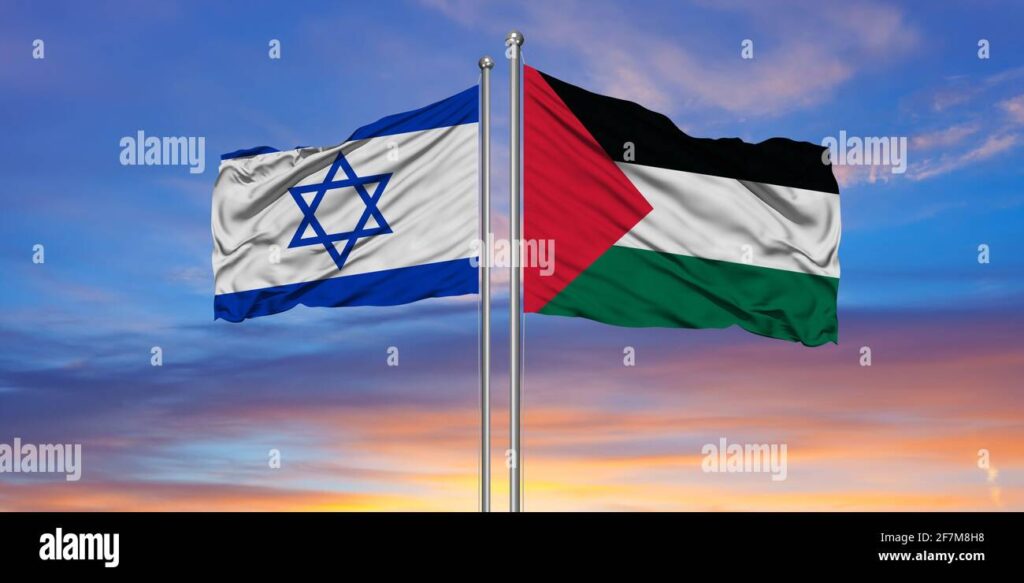Palestine and Israel representatives meeting
The United Nations recently hosted a passionate and intense exchange between representatives of Palestine and Israel, shedding light on decades-long disputes and the pressing need for resolution. Central to the debate were issues of justice, international law, and the enduring struggle for peace in the Middle East.

Palestine’s Call for Accountability
The Palestinian representative emphasized the severe toll of occupation on Palestinian civilians, citing over 44,000 deaths and countless injuries, predominantly among women and children. Accusations against the Israeli government included charges of war crimes and the perpetuation of genocide. The speaker urged the international community, including members of the Security Council, to take immediate action: enforcing ceasefires, delivering humanitarian aid to Gaza, and addressing the underlying causes of violence.
The Palestinian delegate highlighted the persistent refusal of Israel to engage constructively in peace efforts, accusing the Israeli government of dismissing international resolutions and ignoring calls for justice and fairness. The message was clear: the global community must uphold the principles of international law and human rights.
Israel’s Counterpoint: A Path Forward?
In response, the Israeli representative rejected the accusations, instead pointing to the role of Hamas as a barrier to peace. The speech framed Hamas as the primary obstacle, urging the Palestinian leadership to denounce terrorism and cooperate for a peaceful future. Israel positioned itself as open to dialogue and a two-state solution, provided that the Palestinian side prioritizes rejecting extremism.
The Israeli representative also critiqued Palestine’s historical stance, accusing its leadership of repeatedly rejecting opportunities for peace and perpetuating a narrative of blame. The call was for a pragmatic approach: one that focuses on the future rather than the past.
The Bigger Picture: Two Perspectives, One Conflict
The dialogue reflected the entrenched positions of both sides. While Palestine called for recognition, an end to occupation, and adherence to international resolutions, Israel underscored the need for Palestinian accountability and a rejection of terrorism. Both representatives appealed to the global community, each claiming to advocate for peace.
A Way Forward?
Despite the heated exchange, both sides expressed a desire for resolution, albeit under vastly different conditions. The Palestinian representative reaffirmed a willingness to negotiate based on international law and mutual recognition, while the Israeli delegate called for Palestinian leadership to break ties with extremist factions.
The debate underscored the critical role of international institutions like the United Nations in mediating such conflicts. With millions of lives impacted by the ongoing struggle, the call for justice, accountability, and peace remains as urgent as ever.
The Role of International Law
Both sides invoked the importance of international law, yet their interpretations of its application diverged significantly. The Palestinian representative emphasized adherence to UN resolutions and the recognition of Palestine as a state, demanding equal rights and self-determination for its people. In contrast, the Israeli representative framed the issue as a matter of security and the rejection of terrorism, urging the Palestinian leadership to sever ties with extremist factions like Hamas.
International law, as outlined in numerous UN resolutions, provides a framework for resolving disputes. However, enforcing these principles has often been hampered by political alliances, veto powers, and differing priorities among key global players. Bridging this gap is essential for any meaningful progress.
Humanitarian Concerns
A major point of contention during the debate was the humanitarian crisis in Gaza. The Palestinian representative accused the Israeli government of systematically denying aid, perpetuating suffering, and disregarding calls from the international community for a ceasefire. This plea was backed by growing global protests demanding immediate action to address the humanitarian situation in Gaza, including food, medical supplies, and the protection of civilians.
Israel, on the other hand, has defended its actions as necessary for national security, accusing Hamas of using civilians as human shields. This justification has not eased global concerns, with many nations and organizations calling for an immediate ceasefire to prevent further loss of life.
Global Voices Calling for Change
The conflict has garnered worldwide attention, with millions of voices—including those within Israel and Palestine—calling for a cessation of hostilities. The international community, including governments, activists, and civil society groups, has amplified its demand for peace, fairness, and a sustainable resolution. From university campuses to streets across major cities, the cry for a ceasefire and an end to the suffering of civilians has been resounding.
Notably, prominent Jewish voices and organizations in the United States and elsewhere have joined the call for peace, advocating for policies that align with justice and humanitarian values. This solidarity transcends political boundaries, emphasizing the need for compassion and mutual understanding.
The Path Ahead
The debate at the United Nations underscores the urgent need for a structured approach to peacebuilding. This involves:
- Immediate Humanitarian Relief: Ensuring unhindered access to aid for civilians in Gaza and other affected areas.
- Ceasefire Agreement: Establishing a durable ceasefire to halt further violence and create a foundation for dialogue.
- Bilateral Negotiations: Encouraging both parties to engage in direct negotiations facilitated by neutral international mediators.
- Adherence to International Resolutions: Respecting UN resolutions and international law to guide the process toward a two-state solution.
- Addressing Root Causes: Tackling the core issues of occupation, security, and recognition to build trust between the parties.
A Shared Responsibility
Ultimately, the responsibility for achieving peace does not rest solely with Israel and Palestine. The international community must play an active role in ensuring accountability, upholding international law, and fostering an environment conducive to reconciliation. Peace is not merely an abstract ideal but a necessity for the stability and prosperity of the region and beyond.
As the world watches, the urgency for concrete action grows. The voices raised at the United Nations and in global protests are a testament to the collective yearning for a just and lasting resolution to one of the most protracted conflicts of our time.

